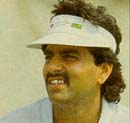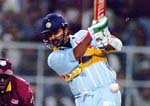Monday, August 11, 2008
NEHRUJI'S TRYST WITH DESTINY IN SHANTIVAN ON 27-5-1964-HIS PUNYATITHI AND NAUNIHAL'S ASHES DISPERSED IN THE FIELDS OF INDIA


PLEASE SEE THAT IN SHANTIVAN WHICH IS SUPPOSED TO BE THE SAMADHI OF OUR GREATEST LEADER ,OUR FIRST PRIME MINISTER SHRI JAWAHAR LAL NEHRU - THERE IS NO MENTION OF THE DEATH DATE OR PUNYATITHI OF NEHRUJI ,DEFEATING THE PURPOSE OF MAKING A SAMADHI.
INSTEAD NEHRUJI'S QUOTATIONS AND WISHES
- AS TO HOW HIS LAST RITES SHOULD BE DONE
AND HOW HIS ASHES TO BE DISPERSED IN THE FIELDS OF INDIA OF 21ST JUNE 1954 IS ETCHED ON THE MARBLE STONES OF THE SAMADHI.
TO A LAYMAN IT MAY SEEM THAT HE HAS EXPIRED ON 21ST JUNE 1954-AS PER THE REGISTRATION OF MARRIAGES ACT OF 1954 ,WHICH WAS ENACTED IN THE FIRST PLACE TO PROTECT HINDU WOMEN FROM BRITISH ISLAM AND 1937 ARYA SAMAJ; BUT BECAME A TOOL IN THE HANDS OF THE MOST HEINOUS FILTH ON THIS EARTH WHICH HAS ITS MAIN CENTRE IN MEHRAULI-INDIA AND WAS THE VENUE AND REASONS FOR THE INFAMOUS JESSICA LAL MURDER CASE- A CASE OF HINDU AND CHRISTIAN WOMEN WHOSE LAST RITES ARE BEING TRAMPLED UPON BY BODY SEX CRIMINALS -MONEY LAUNDERERS,WHO ARE DOING ILLEGAL BIGAMOUS IVF MARRIAGES ,WITH NO SOLUTION TO THE VIOLENT STRIFE IN SUCH A MARRIAGE EXCEPT DEATH OF FIRST WIFE AND SHE BEING SENT FROM THIS WORLD AS A MUSLIM!THE WORD DIVORCE IS NOT KNOWN TO THESE GUTTERS AS THEY ARE DEALING IN HUMAN BODY PARTS/MEDICAL TOURISM AND DISPERSING THEIR OWNERSHIP TO LOCAL MONGRELS -SUPPOSEDLY POOR AS THEIR OWN WEALTH IS STASHED IN FOREIGN LOCKERS
AFTER MILKING THEIR ORGANIZATIONS
[SBI and its associate banks)
DRY TO THE BUILDER MAFIA OF OSAMA BIN LADEN OF MECCA WHO IS DOING MASSIVE CONSTRUCTIONS IN INDIA THROUGH THE GOVERNMENT POLICY OF SEZ-SPECIAL ECONOMIC ZONES-KILLING UNEDUCATED INNOCENT FARMERS,WITH PHARMACOLOGICAL AIDS.
THE MONEY LAUNDERERS HAVE A SPECIAL PACT WITH THE ISLAMIC JIHADI,FANATIC OSAMA DUBAI CONSTRUCTION MADRASSA FACTION WHO ARE THE ACTUAL HAWALA OPERATORS WHO ROUTE THEIR DIRTY MONEY BY ISLAMIC BANKING BACK INTO LEGAL CHANNELS ,THAT THEY WOULD FOREGO THEIR ACTUAL EARNINGS AS WELL AS THEIR ENTIRE WHITE PROPERTY IN INDIA TO THEIR GURGAAS-THE EXTREMELY MENIAL MUSLIMS OF INDIA WHO BREAK ALL THE RULES OF A HINDU HOUSEHOLD TO LOOT AND PLUNDER AND DUST BIN THE LIFE OF A HINDU/CHRISTIAN DEVOUT MIDDLE AGED LADY AS THE MONEY LAUNDERER HAS BECOME A TEMPORARY MUSLIM FOR CRIME AND HOT NEW PUSSY, A NEW WOMAN CURSED TO BE BARREN AND ONLY OBJECT OF SEX FOR THE CRIMINAL OLD MAN.
AS THE FILTHY GUTTERS OF MEHRAULI AND MUKHERJEE NAGAR TUITION CENTRES HAS SPREAD TO THE MOST MIDDLE CLASS HOMES-GOVERNMENT POLICIES ARE BEING MADE ACCORDINGLY -INDIA BEING IN THE CLUTCHES OF BRITAIN AND PALESTINE LIBERATION ORGANIZATION AS ON DATE.
THIS IS WHAT MANU SHARMA MEANT THAT JAWAHAR LAL NEHRU'S TRYST WITH DESTINY IS RUINED WITH HIS FAMOUS LAST WORDS
"THAT THIS WAS IN MY DESTINY" AFTER KHALISTAN SODHI SENTENCED HIM TO LIFE IMPRISONMENT .IT WILL MAKE HISTORY -SAME AS THE AMOUNT OF ORGANIZED CRIME CANDLES THAT WERE LIT FOR JESSICA LAL AND HIS SENTENCING BY MULTITUDES.
JUST SHOWS HOW THE ROT HAS SPREAD AND ONLY GOD CAN SAVE INDIA ; ITS HINDU AND CHRISTIAN WOMEN;AND THEIR LAST RITES/RELIGION.
ONLY ISLAM AND ARYA SAMAJHI HEINOUS KILLERS WILL SURVIVE AS COCKROACHES IN THIS WORLD.
INSTEAD NEHRUJI'S QUOTATIONS AND WISHES
- AS TO HOW HIS LAST RITES SHOULD BE DONE
AND HOW HIS ASHES TO BE DISPERSED IN THE FIELDS OF INDIA OF 21ST JUNE 1954 IS ETCHED ON THE MARBLE STONES OF THE SAMADHI.
TO A LAYMAN IT MAY SEEM THAT HE HAS EXPIRED ON 21ST JUNE 1954-AS PER THE REGISTRATION OF MARRIAGES ACT OF 1954 ,WHICH WAS ENACTED IN THE FIRST PLACE TO PROTECT HINDU WOMEN FROM BRITISH ISLAM AND 1937 ARYA SAMAJ; BUT BECAME A TOOL IN THE HANDS OF THE MOST HEINOUS FILTH ON THIS EARTH WHICH HAS ITS MAIN CENTRE IN MEHRAULI-INDIA AND WAS THE VENUE AND REASONS FOR THE INFAMOUS JESSICA LAL MURDER CASE- A CASE OF HINDU AND CHRISTIAN WOMEN WHOSE LAST RITES ARE BEING TRAMPLED UPON BY BODY SEX CRIMINALS -MONEY LAUNDERERS,WHO ARE DOING ILLEGAL BIGAMOUS IVF MARRIAGES ,WITH NO SOLUTION TO THE VIOLENT STRIFE IN SUCH A MARRIAGE EXCEPT DEATH OF FIRST WIFE AND SHE BEING SENT FROM THIS WORLD AS A MUSLIM!THE WORD DIVORCE IS NOT KNOWN TO THESE GUTTERS AS THEY ARE DEALING IN HUMAN BODY PARTS/MEDICAL TOURISM AND DISPERSING THEIR OWNERSHIP TO LOCAL MONGRELS -SUPPOSEDLY POOR AS THEIR OWN WEALTH IS STASHED IN FOREIGN LOCKERS
AFTER MILKING THEIR ORGANIZATIONS
[SBI and its associate banks)
DRY TO THE BUILDER MAFIA OF OSAMA BIN LADEN OF MECCA WHO IS DOING MASSIVE CONSTRUCTIONS IN INDIA THROUGH THE GOVERNMENT POLICY OF SEZ-SPECIAL ECONOMIC ZONES-KILLING UNEDUCATED INNOCENT FARMERS,WITH PHARMACOLOGICAL AIDS.
THE MONEY LAUNDERERS HAVE A SPECIAL PACT WITH THE ISLAMIC JIHADI,FANATIC OSAMA DUBAI CONSTRUCTION MADRASSA FACTION WHO ARE THE ACTUAL HAWALA OPERATORS WHO ROUTE THEIR DIRTY MONEY BY ISLAMIC BANKING BACK INTO LEGAL CHANNELS ,THAT THEY WOULD FOREGO THEIR ACTUAL EARNINGS AS WELL AS THEIR ENTIRE WHITE PROPERTY IN INDIA TO THEIR GURGAAS-THE EXTREMELY MENIAL MUSLIMS OF INDIA WHO BREAK ALL THE RULES OF A HINDU HOUSEHOLD TO LOOT AND PLUNDER AND DUST BIN THE LIFE OF A HINDU/CHRISTIAN DEVOUT MIDDLE AGED LADY AS THE MONEY LAUNDERER HAS BECOME A TEMPORARY MUSLIM FOR CRIME AND HOT NEW PUSSY, A NEW WOMAN CURSED TO BE BARREN AND ONLY OBJECT OF SEX FOR THE CRIMINAL OLD MAN.
AS THE FILTHY GUTTERS OF MEHRAULI AND MUKHERJEE NAGAR TUITION CENTRES HAS SPREAD TO THE MOST MIDDLE CLASS HOMES-GOVERNMENT POLICIES ARE BEING MADE ACCORDINGLY -INDIA BEING IN THE CLUTCHES OF BRITAIN AND PALESTINE LIBERATION ORGANIZATION AS ON DATE.
THIS IS WHAT MANU SHARMA MEANT THAT JAWAHAR LAL NEHRU'S TRYST WITH DESTINY IS RUINED WITH HIS FAMOUS LAST WORDS
"THAT THIS WAS IN MY DESTINY" AFTER KHALISTAN SODHI SENTENCED HIM TO LIFE IMPRISONMENT .IT WILL MAKE HISTORY -SAME AS THE AMOUNT OF ORGANIZED CRIME CANDLES THAT WERE LIT FOR JESSICA LAL AND HIS SENTENCING BY MULTITUDES.
JUST SHOWS HOW THE ROT HAS SPREAD AND ONLY GOD CAN SAVE INDIA ; ITS HINDU AND CHRISTIAN WOMEN;AND THEIR LAST RITES/RELIGION.
ONLY ISLAM AND ARYA SAMAJHI HEINOUS KILLERS WILL SURVIVE AS COCKROACHES IN THIS WORLD.






















Delhi Public School
Mathura Refinery Nagar, Mathura - 281006Mathura,
Uttar Pradesh,India
www.honeymooninindia.com/.
Enrollment No | D/406/2005 |
| Applicant Name | LATIKA RANA |
| S/O, D/O, W/O | S/O SH.Y.P.S.RANA |
| Date of Birth | |
| Permanent Address | 97, RAJAN KUNJ, OPP. 6th Bn P.A.C., |
| Telephone No | 0121-2611093 |
| Temporary Address | A-22, SEC-9, OVERSEAS APPTS, ROHINI |
| University | |
Honeymoon in Khajuraho is the ultimate place to embark on a journey of marriage, to know your partner better, to spend the time in peace with each other and to plan for a pleasant future together. Khajuraho is renowned the world over for fabulous stone temples with elaborate and exquisite ornamentation. The sensual carvings depicting maithun:-SYMBOLIC TO methi-MISUSED BY CUNT SAMAJ





4. Add methi/fenugreek leaves and salt to taste.
 couples in various postures are the perfect lesson on an un-trodden journey on Honeymoon in Khajuraho.
couples in various postures are the perfect lesson on an un-trodden journey on Honeymoon in Khajuraho._elvis.jpg)
ORGANIZED CRIME OF OSAMA BIN LADEN ARYA/AAYA SANAJ AND PALESTINE LIBERATION ORGANIZATION KILLED RAJIV GANDHI FOR PROTESTING AGAINST THE BRUTAL SLAUGHTERING OF HINDU WOMEN FOR CRIME AND SEX AND INCESSANT CONVERSION TO MUSLIM RELIGION FOR HOT BODIES AND TO REAP RETIREMENT BENEFITS AFTER KILLING FIRST WIFE AND SEATING AN EGG MOTHER SECOND WIFE WHO WOULD ONLY BE A SEX MACHINE DUMB ASS DOING THE BIDDING OF HER OLD MASTER ,ON TO BUREAUCRATIC POSTS OR IN A BUSINESS FAMILY TO EXPAND BUSINESS EMPIRES.

Putting on the red and green 'suhaag' bangles.1916 symbolism of Palestine flag was this only being used to kill-green first change to muslim religion and get married by Registration of marriages Act of 1954 and Hindu ceremony by Arya Samaj Act of 1937 which permits marriage between a muslim and a Hindu ,and then kill first wife by Arya Samaj medically.



Palestine Flag
The Palestinian flag was originally designed by Sharif Hussein for the Arab revolt against the Ottoman Empire in 1916.
In 1917, the Palestinians were the first to raise it as the flag of the Arab National movement and later as the Palestinian flag.
It was again officially adopted as the flag of the Palestinian people by the Palestine Liberation Organization (PLO) in 1964.
Our international flags are accurately reproduced to exact specifications. The flag has 2 brass grommets on the left edge for hanging. The 4"x6" size is mounted to a staff with a spear top.






GRAM DEVATA
The Chhattisgarh Chief Minister Dr. Raman Singh all smiles in a traditional dress prasented to him during 27th Rawat Nacha Festival in Bilaspur on Saturday night. A popular dance form of Yadav community usually takes place every year to celebrate good paddy crop in the Chhattisgarh region. Photo by: Rupesh Yadav
Shri Tambdi Jogeshwari
Views: 7,202
This beautiful video is a spiritual solace to all those who have lost faith in God and it (more)
Added: 2 hours ago
Views: 13
























 After being widely abused and blackballed for revealing how he was offered a Rs 2.5 million bribe by a team-mate to play badly in the Indo-Pak match during the 1994 Singer Cup, the bad boy of Indian cricket, Manoj Prabhakar now stands vindicated!
After being widely abused and blackballed for revealing how he was offered a Rs 2.5 million bribe by a team-mate to play badly in the Indo-Pak match during the 1994 Singer Cup, the bad boy of Indian cricket, Manoj Prabhakar now stands vindicated!  He asked me nothing. He did not even ask me to name the guy who offered me the bribe! Now he says I did not tell him the name. My lawyer was sitting there all through. When we came out of the room, he looked at me and I looked at him. He told me: Are you thinking the same thing that I am thinking? Yeah, I said, he never asked me the real question.
He asked me nothing. He did not even ask me to name the guy who offered me the bribe! Now he says I did not tell him the name. My lawyer was sitting there all through. When we came out of the room, he looked at me and I looked at him. He told me: Are you thinking the same thing that I am thinking? Yeah, I said, he never asked me the real question. 






